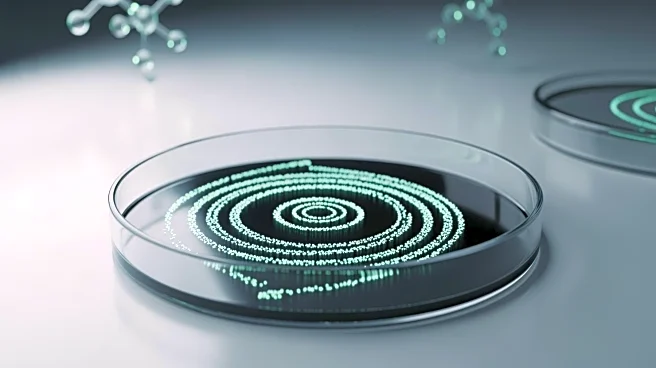What's Happening?
Researchers at East China University of Science and Technology have developed a bacterial biosensor that can detect gastrointestinal disease markers in mice. The biosensor, encapsulated in hydrogel microspheres, contains blood-sensing bacteria and magnetic
particles for easy collection from stool samples. Tests in a mouse model of colitis showed the biosensor could detect gastrointestinal bleeding within 20 minutes. The technology provides a rapid, noninvasive approach for detecting gastrointestinal diseases, with potential applications in diagnosing and monitoring treatments. The researchers aim to adapt the bacteria to detect other gut diseases.
Why It's Important?
This development represents a significant advancement in noninvasive diagnostic methods for gastrointestinal diseases, which are traditionally diagnosed through invasive procedures like colonoscopy. The bacterial biosensor offers a gentler alternative, potentially improving patient compliance and early detection of diseases such as colorectal cancer and inflammatory bowel disease. The ability to rapidly detect disease markers could lead to timely interventions and better symptom management, enhancing patient outcomes. The technology also holds promise for broader applications in bacterial-based diagnostics and therapeutics.
What's Next?
Further testing of the biosensor in human trials is necessary to validate its effectiveness and safety. If successful, the technology could be integrated into clinical practice, offering a new tool for diagnosing and monitoring gastrointestinal diseases. Researchers may continue to explore the adaptation of the biosensor for detecting other biomarkers, expanding its diagnostic capabilities. The development of noninvasive diagnostic methods could lead to a shift in how gastrointestinal diseases are managed, with potential implications for patient care and healthcare systems.
















